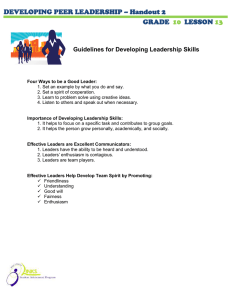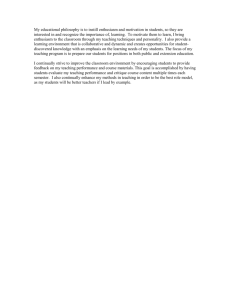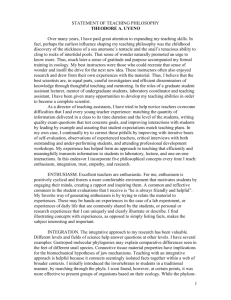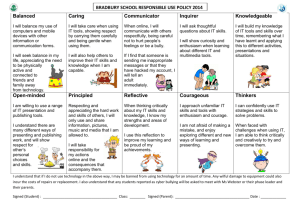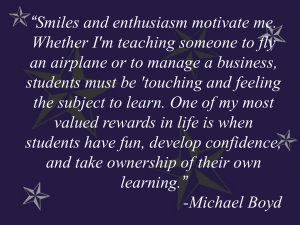Work Habits that influence job Success
advertisement
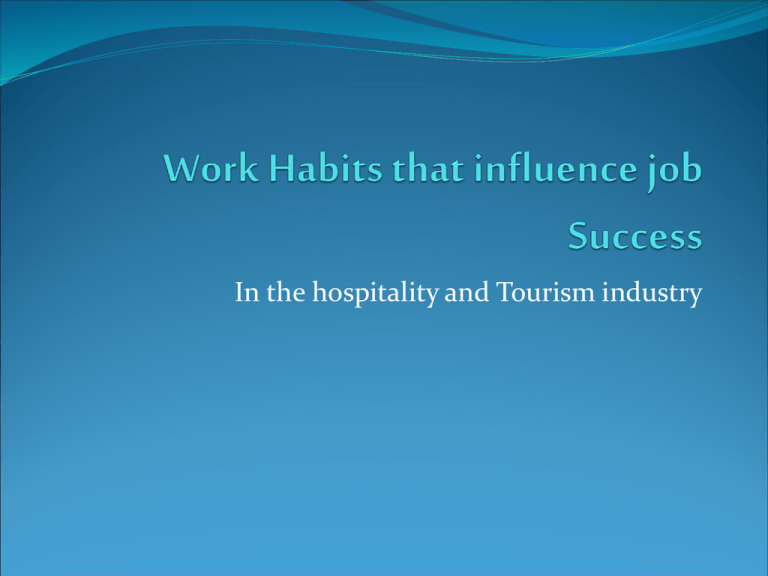
In the hospitality and Tourism industry Being Punctual In other words being on TIME to your job. Others may not be able to do their job if you are not on time to complete yours. Being late costs employers $ because of unproductive time. This also means NOT taking more than your allotted time for breaks and meals, others may be waiting on you before they can take a break. Being Dependable People can count on you to do your job assignment. Showing up for work everyday is a good example of being dependable. When you cannot show up for a legitimate reason, make sure to call your supervisor. Too much absenteeism can cost you your job. Being Responsible This means others can trust you to carry out your Duty. If your work gets completed as requested, this shows you are responsible. Example: If you wait tables in a restaurant, your employer expects you to restock your workstation at the end of your shift. Other staff can count on the station being ready to go when they start their shift. Being Efficient and Organized How does your desk or locker look right now? Can you find things easily in your room? Are you neat and organized? Jobs may require you to keep a certain area neat and organized. You accomplish more work if you know where everything is, rather than having to search to find what you need. Showing Initiative The ability to do things on your own. You do not wait until someone tells you what to do or directs your activities. This does not mean doing work that you are not qualified to do or cannot handle. Employers want employees who have new ideas and a desire to contribute. Being Accurate Employers expect work to be accurate and free from error. Fulfilling these responsibilities requires concentration. Establish productive work habits. Your employers, did not hire you to do work that someone else is going to have to redo! Friendly and Courteous A friendly smile from salespeople shows a positive attitude that welcomes customers. Customers do not want to do business with employees who treat them poorly. Being friendly and courteous may take effort on your part, especially on days when you are not feeling your best. Smiling and being concerned about other people shows you care. Enthusiasm on the job Enthusiastic people have a lively interest in what they are doing. Enthusiasm is contagious. Facial expression, a nonverbal gesture, or a tone of voice can all communicate enthusiasm. In a sales job, enthusiasm can directly affect sales. Enthusiasm, can be contagious and spread to other employees. Self-motivation This is that inner urge to get going and accomplish what you set out to do. You set your own goals and work toward achieving them. Sales representatives must be self-motivated in order to get products sold each day. Job performance is affected by your self-motivating attitude. Being Cooperative Cooperation is important when a team needs to complete a job. Members of a team need to work together to accomplish a common goal. If someone is uncooperative, the job becomes more difficult. The best way to show cooperation is to try and get along with your coworkers. Being Honest and Trustworthy Every employer expects honest and trustworthy employees especially in the following situations: Handling company money properly Using company facilities and property Following company rules and policies In house stealing is one of the reasons consumers pay an increased price for many products and services.
